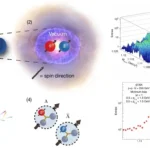Key Points
- Scientists discovered bacteria in Crete that produce compounds lethal to mosquito larvae.
- In lab tests, these compounds killed 100% of the mosquito larvae within 24 hours.
- This could lead to the development of new biopesticides that are safer for the environment than current chemical options.
- The mosquito targeted in the study is a known carrier of diseases, such as West Nile Virus.
Mosquitoes are more than just a nuisance; they kill over 700,000 people a year by spreading diseases, and our current methods of controlling them are failing. Most mosquitoes have developed resistance to chemical insecticides, posing a significant risk to the environment.
Published in Applied and Environmental Microbiology, researchers have found a potential new weapon in the fight against these deadly insects: naturally occurring bacteria. A team of scientists collected samples of soil, water, and plants from the Greek island of Crete and discovered several types of bacteria that are lethal to the larvae of the Culex pipiens molestus mosquito, a carrier of West Nile Virus.
In lab tests, extracts from these bacteria killed 100% of mosquito larvae within just 24 hours. The researchers found that the bacteria produce special compounds, or metabolites, that are toxic to the larvae but are expected to be much safer for the environment than traditional pesticides. These natural compounds break down quickly and are often more targeted, meaning they won’t harm a wide range of other insects.
This discovery is promising because it suggests a new approach to developing effective and environmentally friendly pesticides. The fact that the compounds themselves are what kill the larvae, not a live infection from the bacteria, makes it easier to imagine turning them into a stable product.
The research is still in its early stages of development. The next step is to identify the exact chemical structure of these killer molecules and test them against other types of pests. However, this finding represents a crucial first step in the major global effort to develop safer and more effective methods for controlling pests.





